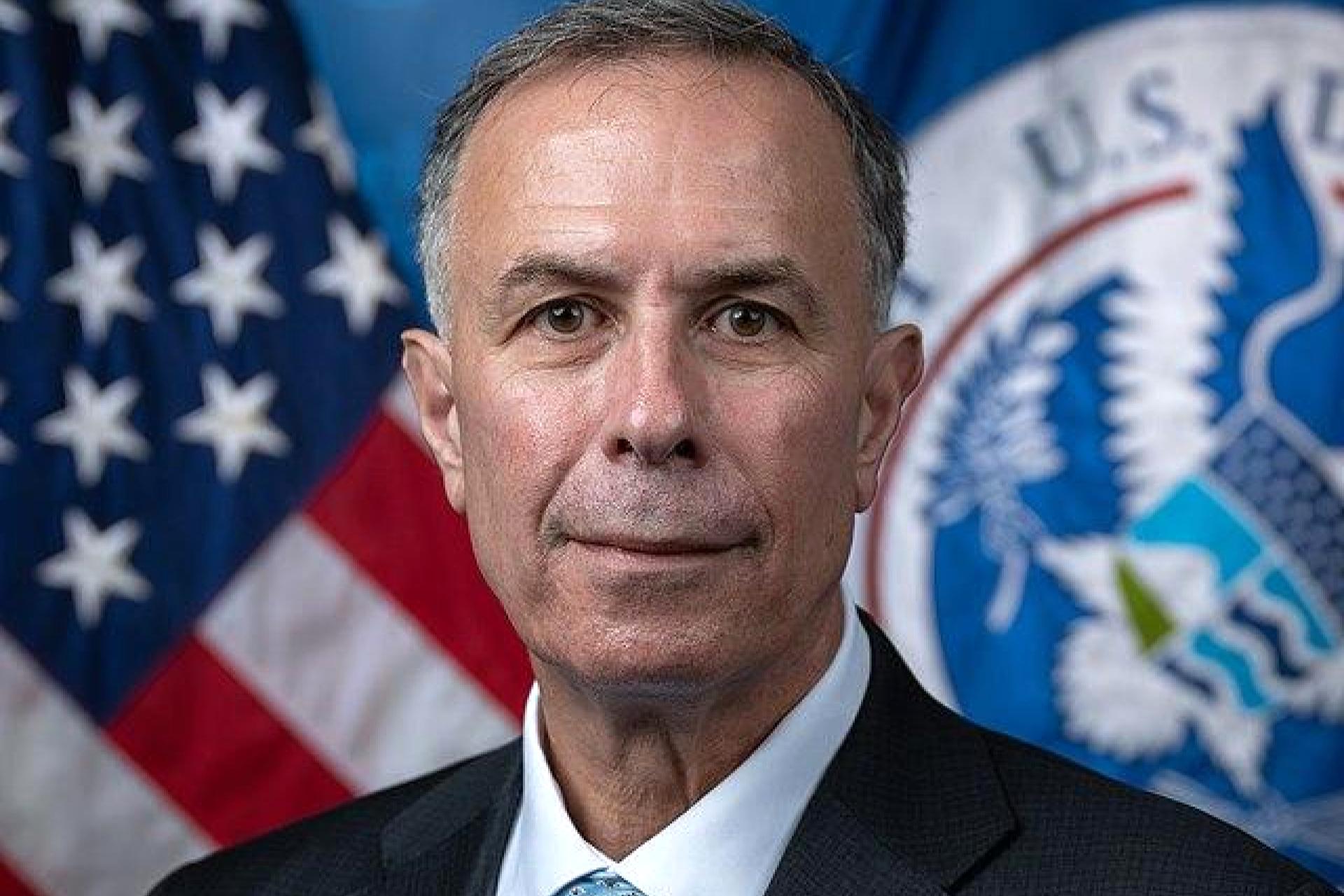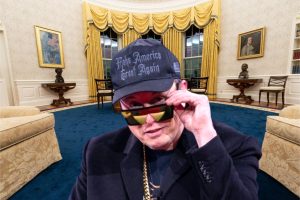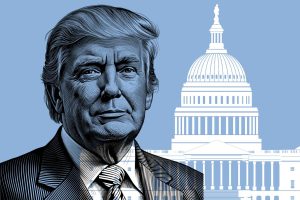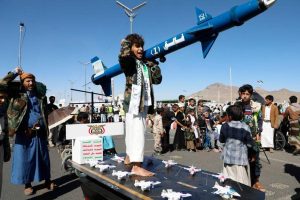HLS.Today – Dr. Dimitri Kusnezov was confirmed as the Under Secretary for the Science and Technology Directorate (S&T) on September 8, 2022. As the science advisor to the Homeland Security Secretary, Dr. Kusnezov heads the research, development, innovation and testing and evaluation activities in support of the Department of Homeland Security’s (DHS) operational Components and first responders across the nation. S&T is responsible for identifying operational gaps, conceptualizing art-of-the-possible solutions, and delivering operational results that improve the security and resilience of the nation.
Prior to DHS, Dr. Kusnezov was a theoretical physicist working at the U.S. Department of Energy (DOE) focusing on emerging technologies. He served in numerous positions, including the Deputy Under Secretary for Artificial Intelligence (AI) & Technology where he led efforts to drive AI innovation and bring it into DOE missions, business and operations, including through the creation of a new AI Office.
Dr. Kusnezov has served in scientific and national security positions, including Senior Advisor to the Secretary of Energy, Chief Scientist for the National Nuclear Security Administration, Director of Advanced Simulation and Computing and the Director of the multi-billion-dollar National Security Science, Technology and Engineering programs. He created numerous programs, including for Minority Serving Institutions, international partners, private sector and philanthropic entities. He has worked across agencies to deliver major milestones such as DOE’s 10-year grand challenge for a 100 Teraflop supercomputer, and first of their kind and world’s fastest supercomputers.
Prior to DOE and his pursuit of public service, Dr. Kusnezov had a long career in academia where he published more than 100 articles and edited two books. He joined Yale University faculty where he was a professor for more than a decade in Theoretical Physics and served as a visiting professor at numerous universities around the world. Before this post, Dr. Kusnezov did a brief postdoc and was an instructor at Michigan State University, following a year of research at the Institut fur Kernphysik, KFA-Julich, in Germany. He earned his MS in Physics and Ph.D. in Theoretical Nuclear Physics at Princeton University and received Bachelor of Arts degrees in Physics and in Pure Mathematics with highest honors from UC Berkeley.
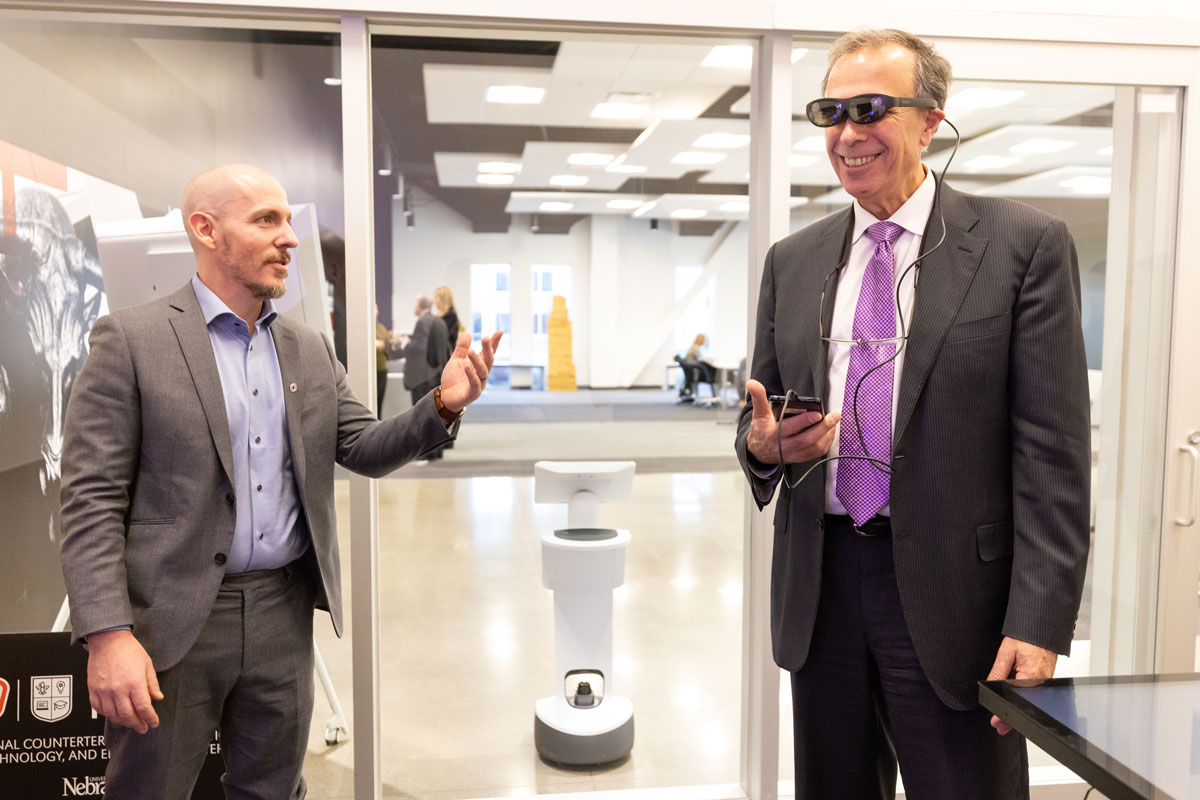
Photo: NCITE University of Nebraska
DHS Under Secretary Kusnezov visits NCITE
Unomaha.edu – During his visit, Kusnezov held a fireside chat with NCITE students and staff, answering questions about his career and the nation’s current threat landscape.
As a theoretical physicist working in academia, Dimitri Kusnezov, Ph.D., focused on topics like quantum dissipation, Fourier’s Law, and spin dynamics.
“What I liked was understanding the world around me in mathematics,” Kusnezov said. “I could have lived there happily (in academia), but when I thought about the world of physics, and when I thought about the world … a world with all of the issues that we have, physics was small.”
Today, Kusnezov serves as under secretary for the U.S. Department of Homeland Security’s Science and Technology (S&T) Directorate, leading research, development, and innovation efforts that support the DHS mission.
On Dec. 7, Kusnezov visited NCITE at the University of Nebraska at Omaha’s Scott Campus. During his visit, he met with Center leadership and participated in technology demonstrations related to emerging threats. Later in the day, he held a fireside chat with NCITE students and staff, answering questions about his career and the nation’s current threat landscape.
Before entering public service, Kusnezov was a faculty member at Yale University, where he taught theoretical physics for more than a decade. During his time in academia, he published more than 100 articles and edited two books.
After entering government service, he held positions such as deputy under secretary for Artificial Intelligence and Technology at the Department of Energy, senior advisor to the Secretary of Energy, and chief scientist for the National Nuclear Security Administration. He became under secretary of S&T in September.
Throughout his fireside chat with NCITE students, Kusnezov talked about his academic past, how he approaches working in government, and his concerns for the future, particularly when it comes to technology.
“The world around us, as we look, is changing in ways that worry me,” Kusnezov said. “I worry about the world we’re leaving our kids.”
Kusnezov said he often thinks about the impact of the democratization of technology. Virtually anyone, he said, can innovate as technology becomes more accessible to the public, allowing the world to change in unexpected ways.
We have a dearth of ideas, a glut of problems, and help is needed.
Dimitri Kusnezov
Because of this and the complexity of problems we face today, there must be a focus on solving problems with people from other disciplines, he said, adding there “isn’t any single problem that the government cares about that can be handled by a single domain expert.”
In order to best understand how to anticipate new issues and resolve existing ones, it is also important for people to find new ways of thinking and new paths toward solutions, he said.
“There is no right or wrong answer,” he said. “You have to be willing to take risks and follow your instinct on what’s important.”
After following his own path from academia to government service, Kusnezov learned about the need for collaboration to get anything done in government. But, he said, that doesn’t mean everyone will be happy with a given course of action.
“There has never been a decision I’ve seen made that everyone is happy about,” he said. “You will have an enemies list, and that will be a measure of your impact.”
Making an impact also requires taking risks and encouraging others to do so. After making the leap to a job that deals with large, complex problems, Kusnezov wants to enable others – including the next generation of the counterterrorism workforce – to take big swings.
“I want to help where we can,” Kusnezov said. “We have a dearth of ideas, a glut of problems, and help is needed. Our job is to enable that as best as we can … I want people to take risks, do things outside of the restrictions of their day jobs, and encourage people to work together and communicate.”
HLS.Today Source: DHS.GOV


